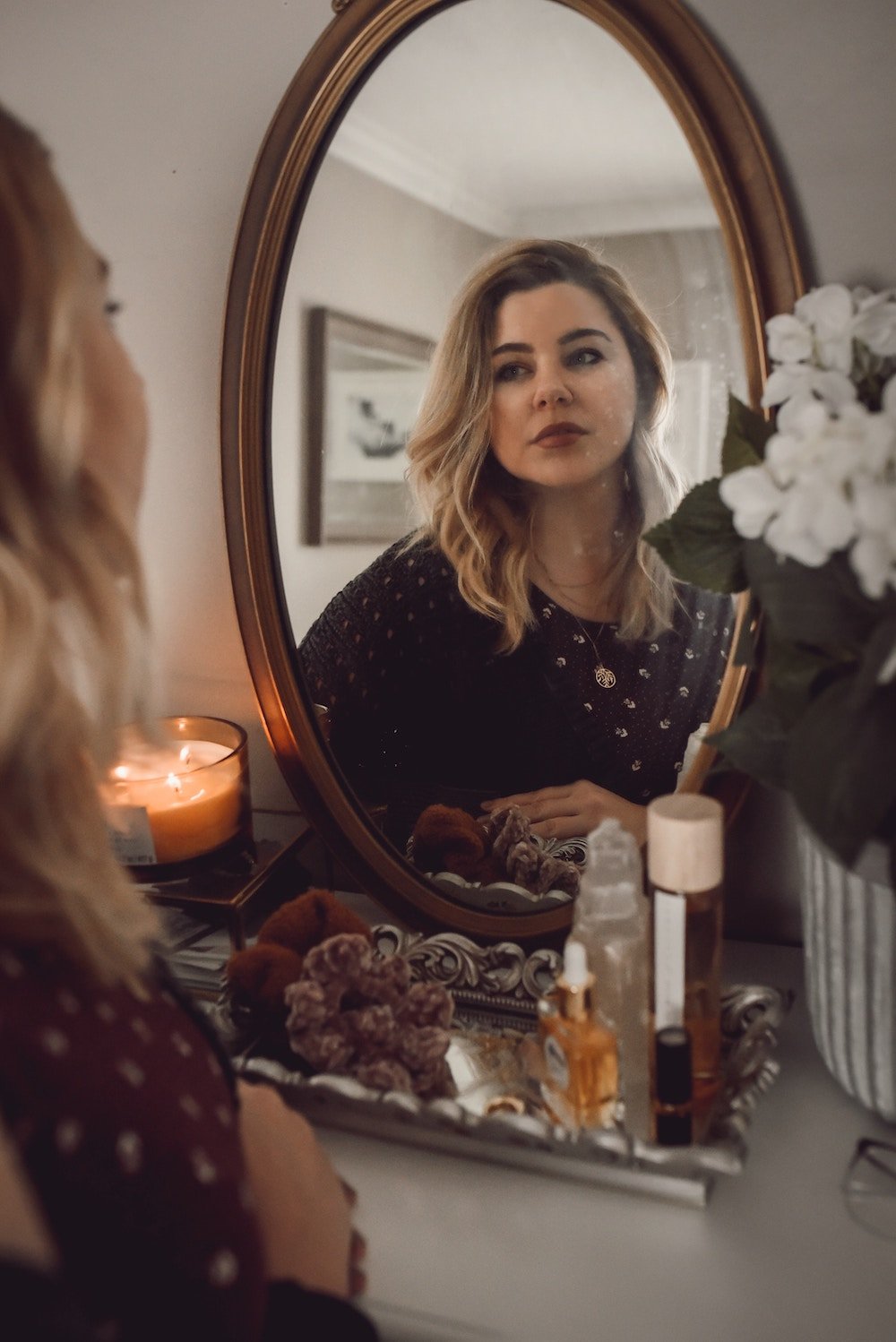
Bucking the system to bring more pleasure and spirituality into your life
Nutrition in Intuitive Eating: Add, don’t take away
When we incorporate nutrition into how we’re eating, often the impulse is to focus on what to remove. Many people vow to cut sweets, processed food, and animal proteins, to name a few, only to find themselves craving and/or binging on those foods a short while later.
Nutrition in Intuitive Eating: Practice makes better
Sometimes we can’t help but view something new through the lens of something familiar. Many folks who are early in their Intuitive Eating path think about nutrition as they always have – something you either get right or wrong. The good news is, you don’t have to do that any more. When approaching nutrition in Intuitive Eating, it’s all about practice, small steps, and a lot of noticing.
Here are my questions when you say you can't stop eating sugar
In the 70s it was pasta, in the 80s it was butter, in the 90s eggs and red meat, in the 2000s it was bread, and now we have sugar. Big, bad, scary sugar.
As a dietitian, I can see how we got here. How the scientific and media messages around the healthful or harmful potential of foods flip flopped its way toward the vilification of sugar, but it’s still very dangerous to look at foods this way.
I just don't feel myself at this weight
I cannot tell you how many times I've heard this from clients and every time my heart breaks. But there is a lot to explore here. Here are some thoughts to get you started.
What I'm thinking when you say you're always tired
You're always tired. I get it. Believe me. Life these days is particularly exhausting.
Given the diet culture we live in, feeling tired might cause us to question whether we should change what or how we are eating. But before you go cutting out gluten or sugar, read on.
Ever wake up with a case of "the ickies?"
This morning I woke up with a serious case of "the ickies." I felt tired but couldn't sleep, my coffee didn't taste as good as usual, even my morning game of spelling bee wasn't that satisfying. I felt myself making a conscious choice NOT to meditate before I needed to spring into action for the day, meaning that it would most likely not happen at any other point. Then I heard one of those helpful little voices in my head that I've come to regard them as my inner teacher. It said "dukkha, dukkha, dukkha."
So...what is Intuitive Eating, really?
As Intuitive Eating becomes more popular and well-known, it can be hard to come back to basics to be sure you really understand what it is.
Intuitive Eating was created in response to the observations that (1) the pursuit of weight loss through dieting (even when not called that) does harm to the body and mind, (2) leads to long-term weight gain and health problems misattributed to being in a larger body, and (3) confirms and strengthens anti-fat bias, which harms everyone.
We are always experiencing deaths and new beginnings
I'm back! I finally experienced COVID and needed to take the last few weeks off. I know, as an entrepreneur and someone with a message I want to spread, I'm supposed to be consistent no matter what. But that's not what I'm about, and that's not what Intuitive Eating and meditation are about. We are not consistent no matter what. Our needs change day to day, month to month, year to year. I hope that the next time you need to rest, you remember that.
You don't need to exorcise "the thing" that drives you nuts?
"What if this is not to be gotten rid of?"
This is the question I asked myself when a familiar stressor reappeared in my life and I felt the sickening agitation of anxiety.
Let's hang out in the Berkshires at the end of this month!
April 30th to May 4th, I'll be teaching a special retreat about Intuitive Eating and meditation. More details in the video above, the sample schedule below…
https://kripalu.org/presenters-programs/intuitive-eating-and-mindfulness-meditation-life
How has your relationship with emotional eating shifted?
1. Repeat after me: there is nothing wrong with having emotions about food. Our cultures, celebrations, associations, and special experiences are what make our relationship with food uniquely ours. Clarify for yourself what you would like the quality of your emotional relationship with food to be. For example, it might be one in which the emotional connection with food provides comfort and guides you to take care of yourself, without feeling like you over rely on food to cope with strong emotions.
Working with the life cycle of emotions
Everything - feelings, thoughts, enjoyable meals, painful emotions - is impermanent. Each phenomenon arises, levels off, and eventually dissolves.
In this special video, which was one of our Intuitive Eating for Life Community gatherings (edited to remove individual members and just preserve the content presented), I discuss that predictable life cycle of pleasant and unpleasant phenomena and provide some ideas for how to observe this, practice staying with it, and ultimately cultivating the ability to be there with and for yourself through all of life's ups and downs.
Is emotional eating inherently bad? (Spoiler alert: no)
In this week's video, I offer some thoughts about why an emotional relationship with food and eating can be a wonderful thing and how subtle investigation and internal work can help you create an emotional relationship with food that feels nurturing rather than distressing. LMK your thoughts!
The relationship between restriction and "loss of control eating"
A confusing thing about any type of "loss of control eating" - whether emotional eating, binging, consistently eating past fullness, stress eating, eating mindlessly or out of boredom - is how connected it is to some form of restriction. This restriction could be restriction of the quantity or type of food or it could be unmet emotional needs. What is important to understand here is that "over" eating is almost always a reaction to some form of "under" eating or not getting "enough" elsewhere in your life.
Here's what I'm thinking when people tell me what they eat
Most people I speak with - both professionally AND personally - are afraid of what I think when they tell me what they eat. They assume - often because this has been true of RDs they've spoken with in the past - that I'm judging their choices and imagining "healthy swaps" to replace what they are eating with what they "should" be eating. In fact, I'm thinking about very different things and I realized it might be useful to you to know what they are:














